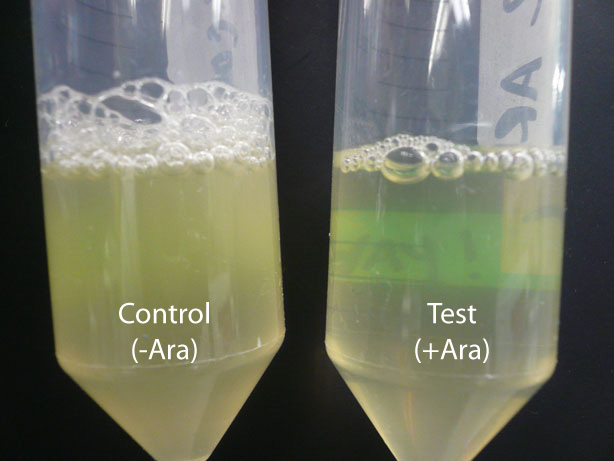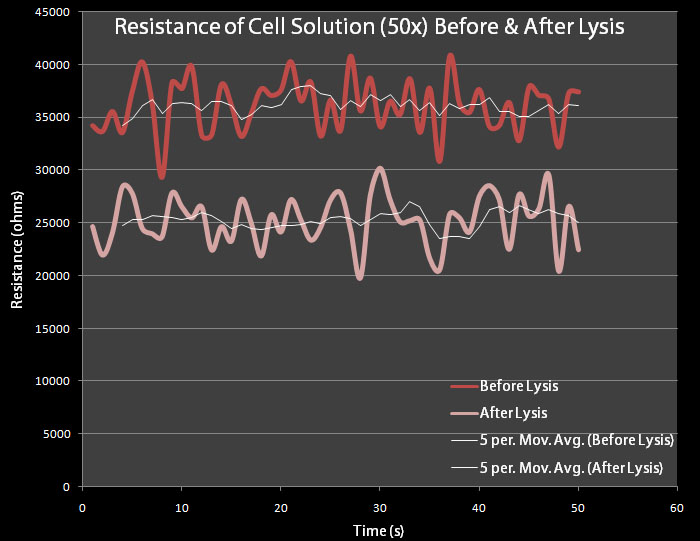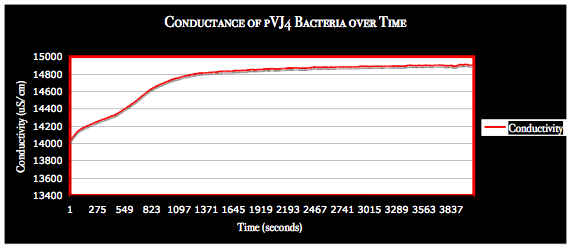Team:Brown/Project/Analysis
From 2008.igem.org
Optical DensityIn order to test the mechanism of the SRRz lysis cassette, we took optical density measurements as cell lysis occurred. The construct we used for testing was contained on the pVJ4 plasmid. This plasmid was obtained from the Mekalanos lab at HMS and contained the SRRz gene cassette in a pBAD18 plasmid. Initially we introduced arabinose to the culture of cells and allowed the cultures to sit at room temperature for several hours and measured the optical density before and after the cells lysed. 0.2% arabinose by mass was added to the cultures. Next, we wanted to test the amount of time required for lysis to occur. We added 0.2% by volume of an arabinose stock solution to cell cultures and measured the optical densities of the cultures at certain distinct time points. The following graphs exhibit optical density trends during gene expression and resulting cell lysis and cell wall degradation. The first graph shows a test measuring optical density and correlates that data to a predicted change in resistance that should occur as the cells lyse. The second graph shows another test of change in optical density over time.
Optical density of the cell cultures significantly dropped between 1 and 2 hours after induction, signifying the expression of the lysis gene cassette. Notice that optical density increases slightly within the first hour of the test, due to continued cell growth before the lytic event. The predicted change in resistance reflects this period of cell growth.
NaCl Testing
Salt concentrations originally tested are listed below. Further tests are to be run where the greatest resistance jump occurred to determine the exact concentration needed to see a significant resistance decrease due to cell lysis.
Resistance TestingConductivity Testing
|
 "
"





